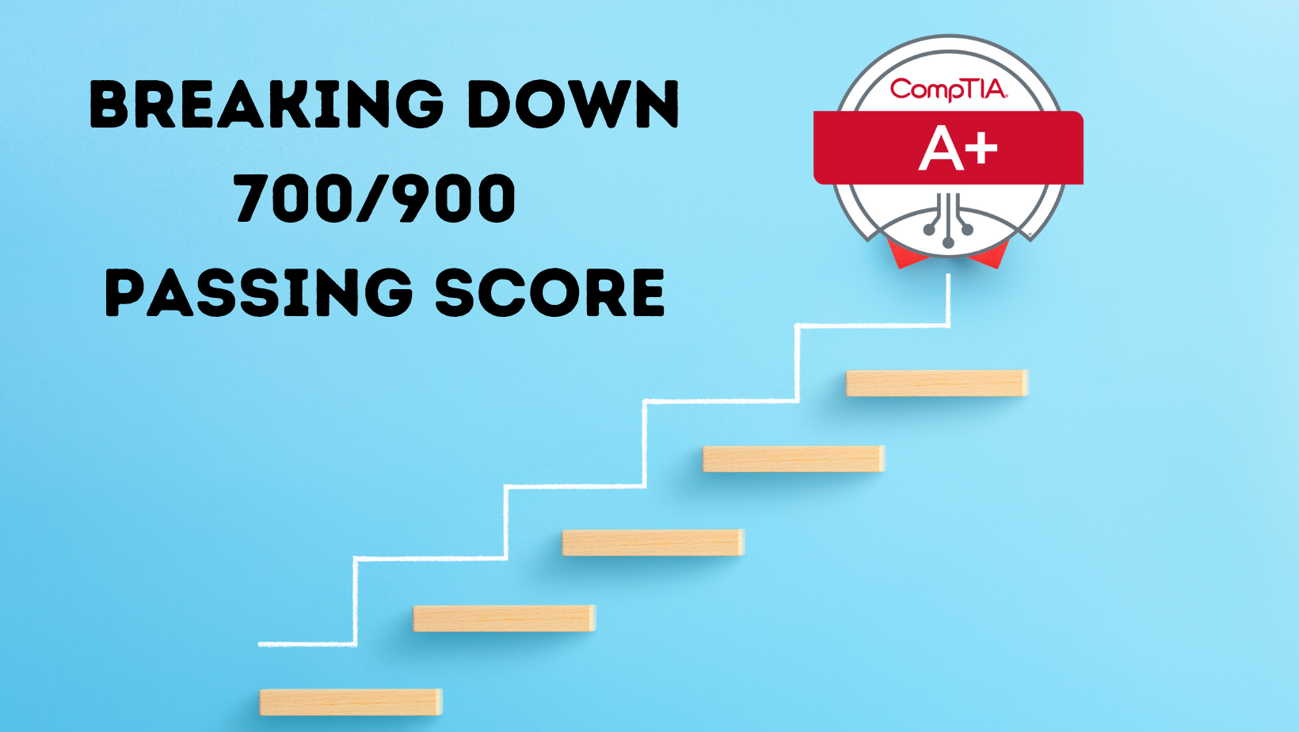What is 700 on a scale of 900? The CompTIA A+ Core 2 Scoring System

The CompTIA scoring system is a mystery to everyone (other than CompTIA, hopefully). When preparing for the A+ Core 2 (220-1102) exam, you'll need to reach 700 on a scale of 900 to pass. But what's the real story behind these numbers?
First off, don't assume this works as a straight percentage calculation. That 700/900 score might suggest you need about 78% to pass, but the reality is more complex. CompTIA guards their scoring system closely - picture it as a classified document that never leaves their vault, like the secret Coca Cola Recipe.
How is each question scored?
What makes this particularly interesting? We don't know if each question carries the same weight. Some questions could pack more punch than others in terms of points, and here's something wild - certain questions don't even count toward your final score. CompTIA uses these non-scored questions as input for analytics on test taker's knowledge, and the real tricky part: during the exam, you can't tell which questions these are.
Performance Based Questions (PBQs) add another layer to the mystery. These hands-on scenarios appear at the start of your exam, but their scoring method remains unclear. You might earn partial credit for getting some elements right, or it could be winner-take-all. CompTIA keeps this information under wraps, so nobody really knows how they score PBQ responses.
How do I know when I'm ready?
After working with certification candidates for over a decade, we've spotted some patterns. While the exact scoring method stays mysterious, students who consistently hit 80% or higher on practice exams usually succeed on test day. This isn't a random target - it comes from years of watching test-takers and gathering their feedback.
Are all CompTIA exams scored the same?
Different CompTIA exams come with different passing requirements, check the requirements for each exam to be sure. While A+ Core 2 needs 700/900, Core 1 (220-1101) requires 675/900. These varying requirements tell us CompTIA sets their standards based on each exam's unique content and challenges.
Take Away
As you study, try not to get caught up in the scoring details. Put your energy into mastering the material completely. If you're taking practice tests (which we highly recommend), aim for that consistent 80% score. This approach has helped countless candidates earn their certifications.
The exam checks your real-world IT knowledge and abilities, not just fact retention. The scoring system, secretive as it may be, supports this goal. When practicing, focus on grasping the reasoning behind each answer rather than memorizing response patterns.
Feeling uneasy about the scoring system? You're in good company. Every IT professional who's sat for a CompTIA exam has wondered about these numerical targets. Here's the silver lining: thorough preparation and solid practice exam performance usually lead to success, regardless of the behind-the-scenes scoring process.
Your best bet? Prepare thoroughly. Use practice exams as checkpoints for your knowledge, but remember they're just one piece of your study plan. Get plenty of hands-on experience, especially with those PBQs, and make sure you understand concepts well enough to handle various scenarios.
That 700/900 score might look intimidating at first glance, but it's within reach if you put in the work. Focus on learning the material deeply, practice regularly, and shoot for scores above the minimum requirement. This strategy works better than trying to decode CompTIA's scoring system.
Interested in contributing to our blog or partnering with us? Want to share your story of how Crucial Exams helped you? Contact Us .